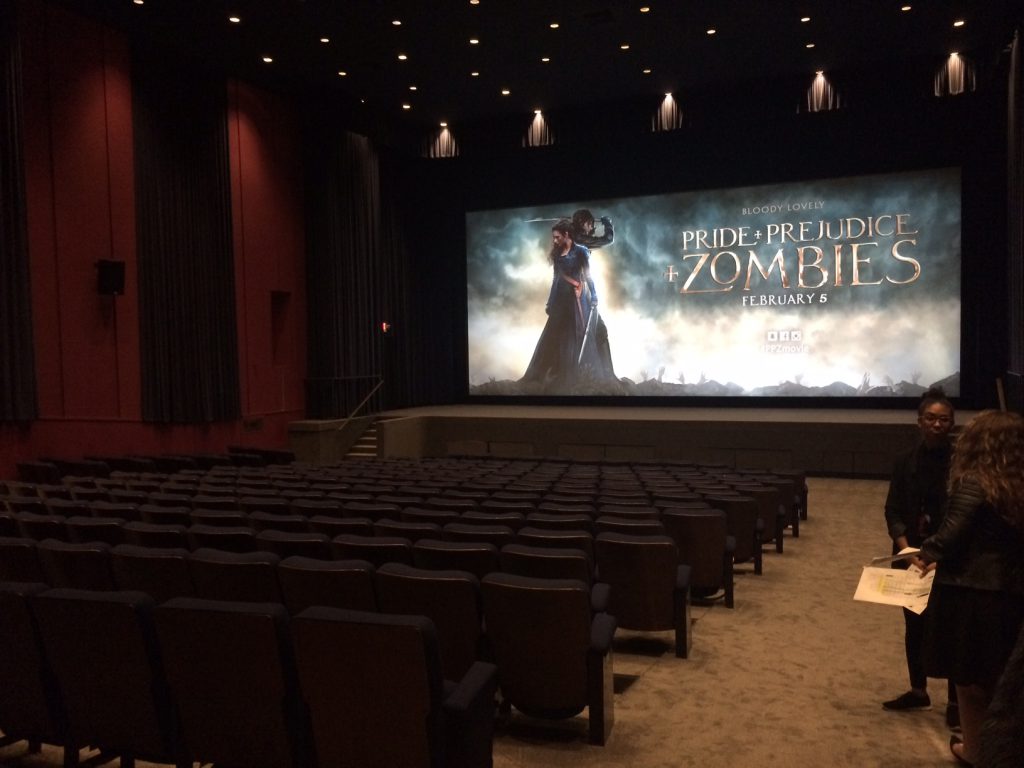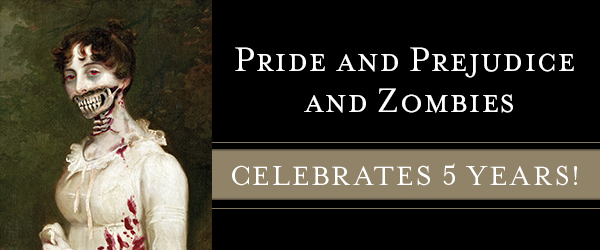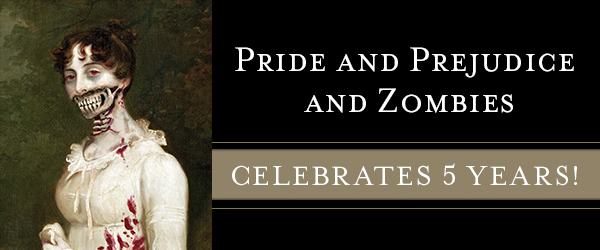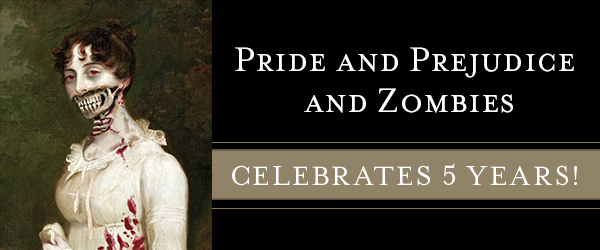Undeniable and Inevitable: The Untold Origins of Pride and Prejudice and Zombies
I’ve spent the last seven years answering questions about Pride and Prejudice and Zombies by Jane Austen and Seth Grahame-Smith, so at this point there should be nothing left to say.
But the Hollywood adaptation hits theaters today, and Julie Leung, our social media manager, asked me to write a blog post commemorating the occasion, so here I am. And as it happens, there is one story about the publication of Pride and Prejudice and Zombies that I’ve never told anyone.
Before I can tell the story, you need to understand how Quirk chooses the books we publish. Once or twice a month on Thursday mornings, the staff gathers in a conference room and the editors pitch their projects to the group. The presentation is usually followed by questions from Sales (“Who’s going to buy it?”) and Publicity (“Who’s going to promote it?”).
If all goes well, the editor leaves the room and makes a deal. If things go disastrously, the editor leaves the room in tears.
By the spring of 2008, these meetings had become pretty contentious. You’ll recall that George W. was still mucking up the White House. The economy was in the toilet. Layoffs were gutting the publishing industry, Quirk’s financial statements were grim, and everyone kept saying print was dead. So every book proposal received an extra-high level of scrutiny. We were scared, and we wanted to publish safe bets.
 This was a terrible time to bring Pride and Prejudice and Zombies into our meeting. According to the conventional wisdom, the book had three big problems:
This was a terrible time to bring Pride and Prejudice and Zombies into our meeting. According to the conventional wisdom, the book had three big problems:
- There was no manuscript. We were hiring Seth Grahame-Smith to write the book on spec, to somehow enhance all 122,000 words of the original Jane Austen novel with “ultraviolent zombie mayhem.” Seth was the funniest writer I’d ever met and I knew the results would be terrific, but of course Seth wasn’t going to attempt such a crazy feat before signing a contract.
- There were no comps. In publishing, a comp is an existing and very successful book that is sorta-kinda like your book. “My book is about a teenage vampire in love. It’s sorta-kinda like Twilight.” There was nothing on the marketplace like Pride and Prejudice and Zombies; the closest thing to a comp was, well, Pride and Prejudice.
- There was no obvious audience. I hoped we’d sell the book to Jane Austen fans and zombie fans, but my friends were quick to point out that “Jane Austen fans won’t tolerate all of the gory zombie bloodshed” and “Zombie fans won’t tolerate all of the Regency courtship and melodrama.”
With all this in mind, my presentation seemed doomed. I really wanted to publish the book. I couldn’t stop thinking about it or talking about it. But clearly this was not a safe bet.
So the night before I pitched the book, I did something I’d never done before. I sat at the desk in my home office and I wrote out my entire presentation. I decided that – since I had no evidence to support my claims — I would have to speak with Donald Trump-ian levels of confidence. I would proclaim our chances of success to be undeniable and indisputable and inevitable.
I made my best case on paper, and then I read it and re-read the presentation fifty times, until I had the entire thing memorized. By the time I finished, it was one in the morning. And I remember looking outside at my neighbor’s houses, at all of the dark windows, feeling like I was the only person still awake in West Philadelphia, and I remember wondering: “Am I crazy? What if I’m wrong? I’m probably wrong. And I’m going to look so stupid. Why the hell am I doing this?” And then I re-read the presentation one more time, just to make sure I had it all down.
 The next morning, I walked into the conference room and gave my pitch from memory. I said the book would sell everywhere, in chain stores, indie stores, college stores, and Walmart stores. The book would sell around the world because Jane Austen had fans in dozens of countries. There would be audio books and graphic novels and a big-screen movie adaptation. Its success would be undeniable, indisputable, and inevitable.
The next morning, I walked into the conference room and gave my pitch from memory. I said the book would sell everywhere, in chain stores, indie stores, college stores, and Walmart stores. The book would sell around the world because Jane Austen had fans in dozens of countries. There would be audio books and graphic novels and a big-screen movie adaptation. Its success would be undeniable, indisputable, and inevitable.
To my astonishment, all of my coworkers readily agreed with me. This is a true testament to the gang at Quirk Books. Just about everybody loved the idea. So I left the conference room with a deal for Seth, and we were off and running.
I wish I still had a copy of this presentation (it’s marooned on a hard drive of a busted laptop) because I’m pretty sure all of my predictions came true. Seth delivered a manuscript that was smart, silly, and fun, and the book found a massive audience. The New York Times Magazine called it one of the best ideas of 2009. Quirk sold a million books, there were translation deals and posters and bobbleheads and even a lingerie license. And now (8 years later!) there is finally a motion picture adaptation hitting theaters.
On January 21 I went to the Harmony Gold Theater for the Hollywood premiere. The sidewalks were lined with paparazzi and autograph hounds, and the lobby was full of movie stars. There’s Lily James (Cinderella)! There’s Matt Smith (Doctor Who)! There’s Lena Headey (Game of Thrones)!
And there’s the funniest author I’ve ever met, Seth Grahame-Smith, who has moved onto fame and fortune writing screenplays for big-budget Hollywood blockbusters. I will always treasure this photo of author and editor standing in front of the big screen:
There were hundreds of people attending the premiere but I only knew a handful of them, so I spent a lot of time standing around in the lobby and waiting for the movie to start. And as I stood there, surrounded by studio execs and starlets and agents and producers, I kept coming back to the craziest memory. I kept thinking back to that late night in my home office when I typed up my presentation, reading it and re-reading it, looking out at my neighbor’s windows and wondering “Am I crazy? What if I’m wrong? I’m probably wrong. And I’m going to look so stupid. Why the hell am I doing this?”
I’ve since learned it’s normal to have these kinds of doubts when you are conjuring something out of nothing. The only response is to put on a brave face and do the work and to will the project into existence, to make its success undeniable and indisputable and inevitable.




